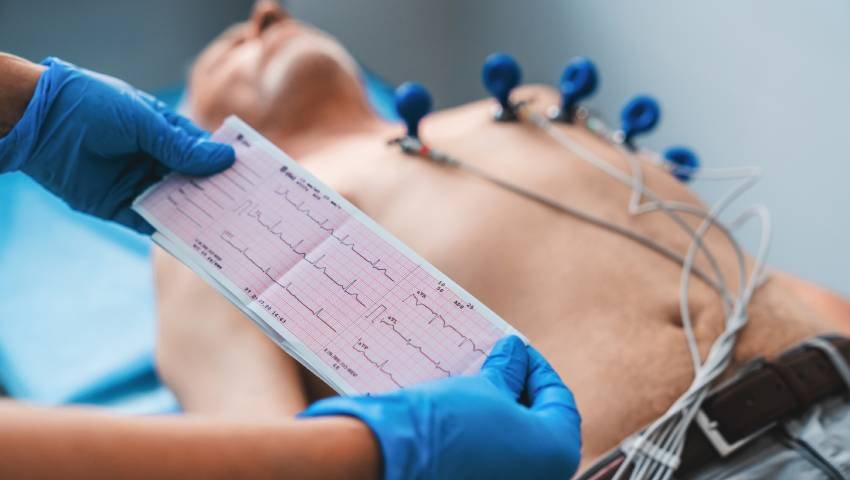How an ECG Can Help Diagnose Silent Heart Conditions
Heart disease is often thought of as a sudden event, marked by chest pain or breathlessness. However, many heart problems can remain silent, showing little or no symptoms until they become serious. Detecting these conditions early is critical for preventing complications, and one of the most effective tools for this is the Electrocardiogram (ECG or EKG).
What is an ECG?
An ECG is a quick, painless, and non-invasive test that records the electrical activity of your heart. It tracks how fast your heart is beating, whether the rhythm is regular, and how well the chambers and walls of your heart are working.
The results are displayed as waves on a graph, giving cardiologists important insights into your heart’s health.
Silent Heart Conditions an ECG Can Detect
- Regulates blood pressure - Many patients may not feel symptoms of arrhythmia, yet ECG can reveal abnormal rhythms that may increase the risk of stroke or sudden cardiac arrest.
- Silent Heart Attacks - Some people have heart attacks without obvious symptoms. An ECG can show evidence of past heart attacks by detecting damage in the heart muscle.
- Coronary Artery Disease (CAD) - Reduced blood flow to the heart, caused by blocked or narrowed arteries, may not always cause chest pain. ECG can indicate signs of poor circulation or ischemia.
- Hypertrophy (Thickened Heart Muscle) - Conditions like high blood pressure can silently enlarge the heart muscle. ECG patterns help identify this thickening early.
- Electrolyte Imbalances and Medication Effects - Certain medications or imbalances in minerals like potassium and calcium can disturb heart function. ECG helps monitor these silent changes.
Why Early Detection is Important
Silent heart conditions are dangerous because they often go unnoticed until a major event occurs. By diagnosing problems early through a simple ECG, patients can:
- Begin timely treatment
- Prevent complications such as stroke or heart failure
- Make lifestyle changes to protect long-term heart health
Expert Insight from Dr. Sunil Kumar Wadhwa
According to Dr. Sunil Kumar Wadhwa, Associate Director – Cardiac Sciences at Max Hospital, Gurgaon:
An ECG is one of the simplest yet most powerful tools we have in cardiology. Many of my patients are surprised to learn that silent heart issues can be identified long before symptoms arise. With my 22+ years of experience, I strongly recommend routine ECG screenings for those with risk factors such as high blood pressure, diabetes, smoking, or a family history of heart disease.
When Should You Get an ECG?
You should consider an ECG if you:
- Have a family history of heart disease
- Suffer from high blood pressure, diabetes, or cholesterol issues
- Experience fatigue, palpitations, or dizziness
- Are above 40 and want to undergo preventive heart screening
Conclusion
An ECG is more than just a routine test—it is a lifesaving diagnostic tool that can reveal silent heart conditions before they turn into emergencies. If you have risk factors or concerns about your heart health, consult an expert like Dr. Sunil Kumar Wadhwa at Max Hospital, Gurgaon, for a complete evaluation and tailored care.

